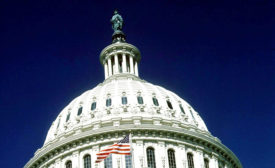Home » Keywords: » Affordable Care Act
Items Tagged with 'Affordable Care Act'
ARTICLES
Cancer death rate has dropped 25% since 1991 peak
Rates differ by gender, race
January 9, 2017
Never miss the latest news and trends driving the safety industry
eNewsletter | Website | eMagazine
JOIN TODAYCopyright ©2024. All Rights Reserved BNP Media.
Design, CMS, Hosting & Web Development :: ePublishing





